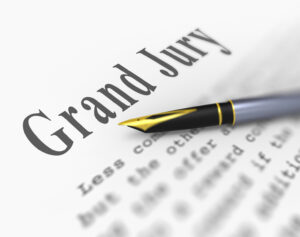Although the grand jury is not usually relevant in criminal cases, it is critical that you understand their function in your case if they are. Of course, working with a criminal defense attorney who can provide a free legal consultation is the best approach to learn more about how a grand jury will affect your unique case. To learn more, call Law Office of Michael L. Fell at (949) 585-9055 right now.
The grand jury's function
A grand jury is a group of persons that functions similarly to a trial jury. They can be consulted in both criminal and civil proceedings. Their role, however, is distinct from that of a juror on a trial jury. The prosecutor presents evidence before the grand jury, and the grand jury must decide if there is enough evidence to establish that the accused committed the crime.
The grand jury's job isn't to judge whether the defendant is guilty or not; it's to decide if charges should be made. They will issue an indictment if they believe it is more likely than not that the accused committed a crime.
Grand juries are handled differently in different states
For grand juries, several jurisdictions adopt what's known as a minority strategy. This implies that the prosecutor's sole responsibility is to provide the proof that the defendant has committed a crime. The prosecution is not compelled to produce evidence if there is substantial, reliable proof that the accused did not commit the crime. According to this position, the criminal defense counsel will have the opportunity to present that evidence at trial.
Even if the accused had a good alibi, if they were caught for grand theft and there were fingerprints from the defendant at the site of the crime and a bag of money in their home, that would be enough to convict them.
The majority opinion is the alternative option, which is adopted in most states. It compels prosecutors to tell the grand jury the complete truth. If there is compelling evidence that points to innocence, it must be made public. This does not, however, imply that the prosecutor is obligated to reveal every piece of evidence that the defense could utilize at trial.
As an example, suppose one of the prosecution's witnesses is a serial liar. Although this may be useful to the defendant at trial, it does not give direct proof of the accused's innocence, and hence the prosecutor is not obligated to provide it. It's also worth noting that the prosecution is not compelled to seek proof of innocence; instead, they must simply offer material that they currently have.


